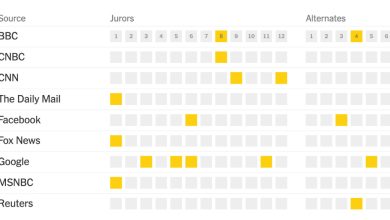
When Roz Chast Closes Her Eyes, Chris Rock and Nasty Babies Open Theirs
I MUST BE DREAMING, by Roz Chast
There are many glorious New Yorker cartoonists, but Roz Chast has long scored highest, in my observation, on what I’ll call, with apologies to Alison Bechdel, the refrigerator test: It’s Chast’s work that most often gets torn out and magnetized to a metal surface till it’s yellow and curling. (“Furies 2.0: Ironia, Sarcasta and Passivagressa,” with their wicked smiles and hands on hips, is a particular favorite.)
Our foremost chronicler of urban neurosis has a skinny but limber new book, “I Must Be Dreaming,” that collates some of her nocturnal imagination’s wilder moments, and some of the more mundane ones, too. It’s a little odds-and-endsy, like the old “Saturday Night Live” sketch of Jon Lovitz as Picasso scribbling on a cocktail napkin, but a pleasurable rummage nonetheless.
The standard-issue dreams of pantslessness, back-to-school and tumbling teeth all make appearances, but so too more exotic nightmares: a tiny third eye that can see only light and dark; a global drought addressed by Chast’s personal saliva surplus (“everyone was grossed out, but it was either take my drool, or die”); and a blamelessly murderous baby from the future.
Also a horror movie set in the aisles of a grocery store titled Stop & Chop. “I don’t particularly care for them,” Chast writes of puns, “but apparently, that doesn’t seem to matter” to her subconscious, which has conjured the average schlemiels Ted Less-So, after the popular TV show, and Willard of Oz. “Not a wizard,” she explains, conceding “not much of a cartoon, either.”
Once a cornerstone of psychoanalysis, contemplating one’s dreams in this manner now feels a little retro, even fanciful. Today’s young moderns are more preoccupied with achieving and optimizing sleep through drugs and electronic trackers than unpuzzling its mysterious cinema, à la the famous Salvador Dalí sequence from “Spellbound.”
And yet the names of these aids, even the pharmaceutical category “hypnotic,” sound like a convocation of ancient gods. One can imagine Chast following up her “Furies” with drawings of Ambien, Apollo, Halcion, Lunesta, et al.
Macbeth called sleep, among other metaphors, “chief nourisher in life’s feast.” In Chastworld — that instantly recognizable and weirdly comforting place of worried expressions, rumpled hair and saggy living-room sofas — life does not seem so much like a feast as an anxiously picked-over early-bird special.
Many of her dreams feature actual food, and, not wanting to bore with extraneous details, she instructs us to consider her summaries “dream filets.”A woman covers a bald man’s head in whipped cream and licks it off. Two rotting plums feed on each other and then burst into fire. Elderly Jews at a party offer Chast a take-home portion of whitefish and sable; she declines, fretting that fellow subway riders will give her “the stink-eye.”
Served after the filets, like a complicated dessert, is a condensed overview of dream theories, from the scholarly, like the Finnish neuroscientist Antti Revonsuo’s concept of “primitive instinct rehearsal” — running from a monster or watching a plane crash might be you practicing to survive — to the superstitious. Aristotle and Schopenhauer believed that dreams reflect what’s going on with the body in sleep, like indigestion, which Chast illustrates by personifying pepperoni pizza, a jalapeño pepper and a hot dog blurting, “Howdy? Remember us?”
The author is a child of prime-time television, not 24-hour cable and the internet — she used to wonder why she didn’t just “switch off” at the end of a day, like channels done with their programming, but is open to the “screensaver” hypothesis that dreams are just to keep systems running. “All that ocular fluid. Who knows? Maybe without dreams, our eyeballs would turn into Jell-O molded salads.” (Can someone make sure she’s had lunch?)
You can’t talk about Chast’s work without acknowledging her breakout hit of almost a decade ago, the deservedly decorated graphic memoir “Can’t We Talk About Something More Pleasant?,” an instant classic of eldercare literature. Perhaps the most magical thing about dreams is that they enable the visitation of lost loved ones, and both of her memorable parents make cameos here — interestingly not together, given that they were practically conjoined in life.
But even funnier are the encounters with celebrities: Henry Kissinger walking out of the dentist — always with the dentist, in dreams — carrying a BlackBerry; Chris Rock narrating a documentary about a time machine “for people who want to BLOW OUT THEIR PIPS AND SEEDS”; Chast telling Fran Lebowitz to “give a hoot and holler” if she’s ever in her neighborhood, and showing the playwright Wallace Shawn (the son of the longtime New Yorker editor William Shawn), whom I’ve always considered a kind of spiritual brother to her, an unexpected broccoli patch.
This Halloween, why not give Linus and Lucy a rest for Wallace and Roz? Chast’s dreams are a window cracked open onto her creative process; a grab bag of treats more salty than sweet.
I MUST BE DREAMING | By Roz Chast | 192 pp. | Bloomsbury | $27.99




